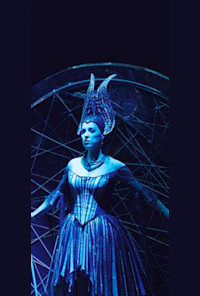The first performance of Mozart's opera The Magic Flute took place in Vienna on 30 September 1791. The libretto in German was written by actor, director and impresario Emanuel Schikaneder, a friend of the composer. He also played the role of papageno's birder at the premiere. The fairy-tale plot in the spirit of the magical musical comedies popular in Austria was a motley spectacle filled with wonderful adventures and fantastic creatures, which was complemented by hints of current events and ideas. Like the plot, the musical style of the opera was multi-layered. Simple song numbers in the spirit of singspiel coexisted with the most complex coloratura arias, veiled quotes from J. S. Bach and the Protestant chorale - with the music of the Masonic ceremonial ...
The plot outline of the "Magic Flute" was the story of Prince Tamino, who went in search of Princess Pamina accompanied by the simpleton Papageno. With the help of magical musical instruments, flute and bells, the heroes managed to successfully complete the dangerous journey and find happiness: in the finale of the opera, two happy couples were united - Tamino and Pamina, Papageno and Papagena.
In the subtext of the tale, Masonic symbolism was easy to read. (Both Schikaneder and Mozart were active members of Masonic lodges.) It was embodied, first of all, by the opposition of darkness – the world of the Queen of Night and light – the kingdom of Sarastro. In the final scene, the main characters, Tamino and Pamina, having passed the rite of initiation, together with the priests praised the strength, beauty and wisdom of the gods.
Soon after the premiere, "The Magic Flute" gained popularity equal to that of its famous predecessors - Mozart's operas "The Marriage of Figaro" and "Don Giovanni". After the first performances in Russia by the forces of the German troupe, held in the 1790s, in 1818 the premiere in St. Petersburg was held with the participation of Russian artists.
On the poster of the Bolshoi Theater" "The Magic Flute" first appeared on March 29, 1884. On this day, her first performance took place under the baton of Karl Albrecht, staged by Anton Bartzal and with "special effects" invented by the "wizard of the Moscow stage" Karl Waltz. Subsequently, the performance was repeatedly renewed, and in 1906 it was presented with updated scenery under the direction of Ulrich Avranek.
In Soviet times, "The Magic Flute" was not included in the repertoire of the Bolshoi Theater. Her return occurred in 2005 on the New Stage: a bright, phantasmagoric performance staged by the famous British director Graham Vic and his co-author Paul Brown, a wizard of the world stage of the early XX century. The musical director of the production was also the British, Stuart Bedford, a recognized interpreter of the works of Britten and Mozart.
The Magic Flute premiered at the Chamber Musical Theatre on September 24, 2004. This performance was the last work of the founder of the theater Boris Pokrovsky, co-authored by conductor Vladimir Agronsky and artists Viktor and Rafail Volsky. Laconic scenography and a fairly traditional, clear and accurate in detail style of production made it possible to organically embody Mozart's last opera on the stage. The timelessness and humanity of Pokrovsky's performance seemed to coincide with the "genetic code" of Mozart's brilliant opera, focusing on music.



